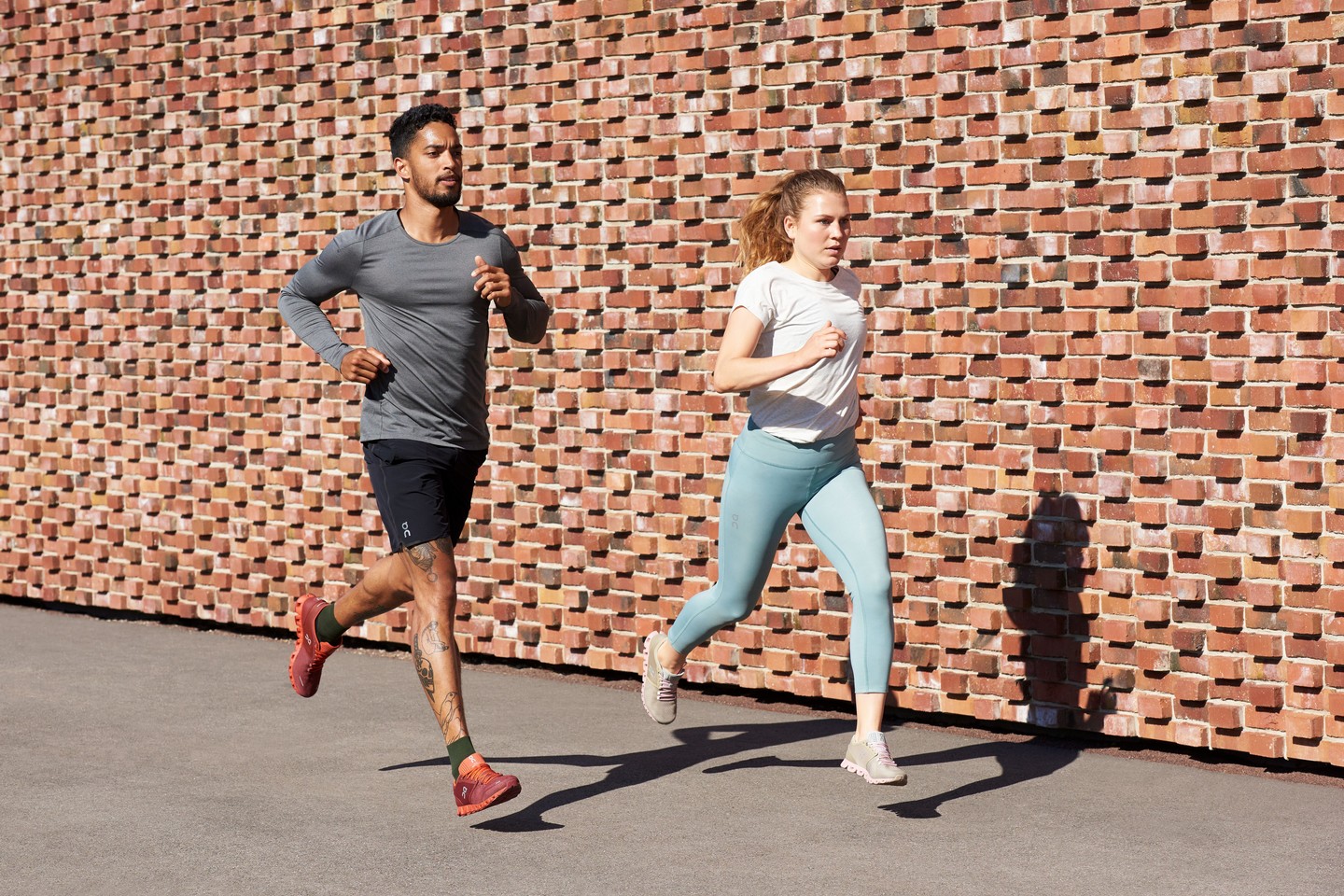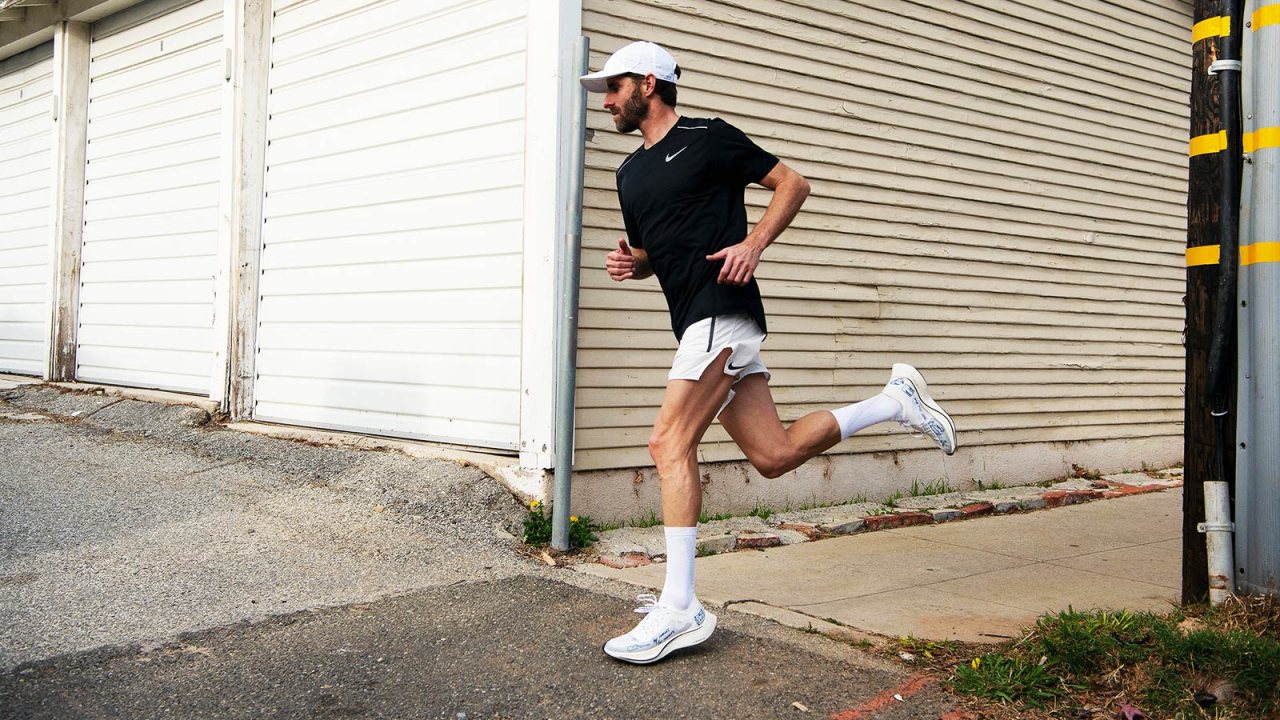What is running good for?
Running is a popular activity with many benefits on the body and overall health, specifically:
- Better cardiovascular health: Running increases heart rate and helps strengthen the heart and blood vessels. This reduces the risk of heart disease and stroke.
- Stronger and more resistant bones: Running has a positive effect on the musculoskeletal system. It helps increase bone density, reducing the risk of osteoporosis and other bone-related diseases.
- Improving physical condition and endurance: Regular running helps to increase lung capacity and improve endurance, making it easier to carry out everyday activities. Carrying bags of groceries will be easy peasy!
- Improving the muscle tone: Running is a complex activity that engages your whole body. It will help you strengthen your legs, hips, and core, increasing your overall endurance.
- Better mental health: Physical activity in nature has been shown to improve mood, reduce stress and increase feelings of well-being. Once you get a taste of that great feeling after a run, you'll want to experience it more and more.
- Weight management: Running is an energy-intensive activity, which means you burn calories efficiently. This can lead to weight loss and fat loss.
Top4Running TIP: How to persevere with running and not give up? Find your running WHY.
What happens to the body while running?
During running, the body undergoes several physiological changes in response to the increased energy demand. These changes include:
- Higher heart rate: The heart pumps more blood to supply oxygen and nutrients to the working muscles.
- Faster breathing: It helps satisfy the increased need for oxygen in the body.
- Muscle activation: Legs, glutes, core, and arm muscles work during repetitive movements.
- Lactic acid production: Muscles produce lactic acid as a by-product of energy production. In some cases, this can lead to muscle fatigue.
- Sweating: By producing sweat during activity, the body regulates body temperature and removes waste products from the body.
As you can see, running is a physically demanding activity that requires the coordination of multiple systems and processes in the body. That's why when starting out, it's important to start slowly and gradually increase the intensity and length of your run to prevent injury. Remember that health comes first.
Men's running apparel Women's running apparel

What will change and when if I start running?
After about 3 - 4 months of regular running, depending on your sporting history, you will start to feel the changes. Some changes you won't see in the mirror at first, but don't worry, they are there! These include improvements in your cardiovascular health, better endurance, or strengthening muscle groups throughout your body. Running 5km, moving a piece of furniture, or climbing to the 7th floor will be much easier for you! If you have gotten into a calorie deficit through running, you may notice weight loss or a smaller clothing size. Read more about running and weight loss. Running also has a positive effect on mental health. You'll feel refreshed, be in a better mood, and you'll manage your daily responsibilities with more commitment.
It's different for every person, but we believe that running will bring a lot of benefits to your life! But does it have any risks? Yes. Beware of overloading your joints, especially your knees and hips. Repeated movement and strain can lead to health complications or injuries over time. To minimize these risks, we have some tips for you to add to your running routine:
- The right running shoe - The right shoe is essential because it takes care of comfort, shock absorption, and stability. Nowadays, running shoes are made with modern technologies that will allow you tens of healthy miles.
- Running technique - But a shoe won't save you on its own. Body coordination when running, impacts and breathing have an influence on your long-term health. Find a running coach to help you avoid incorrect movement patterns in the beginning.
- Strength training - Muscles work as a support system for joints and bones, so it is important to strengthen them. You can exercise with your body weight or with weights at home or in the gym. Also include the running alphabet.
- Other activities - Occasionally replace running with another form of activity, such as cycling, skating, swimming, yoga, or squash.
- Regeneration - Stretching, quality sleep, a balanced diet, and drinking are very important in long-term running.
Top4Running TIP: Not sure how to choose the right running shoe? Try our Shoe Finder!

Can I lose weight by running?
Running is a great way to keep fit and improve your overall health. Since it is an energy-intensive activity, yes, you can lose weight by running.
But! The law of energy balance still applies:
- Input < output = calorie deficit (you lose weight)
- Input > output = calorie surplus (you gain weight)
- Input = output = maintain a constant weight
Running is a great tool to increase your energy expenditure and get into a calorie deficit. Keep in mind that running is not the only factor. A balanced diet and regular strength training are also important parts of the whole process. Another benefit of running is that it helps boost your metabolism, which means that your body is still burning calories even after the workout. In addition to reducing weight, running will also help you to firm up and sculpt your muscles. You'll strengthen your legs, glutes, and core, which will transform your figure.
Running and weight loss: How long before I see results?
How long before the body starts to change? The time it takes to see the desired results depends on several factors, for example:
- Your starting weight and body composition (muscles, fat, water ratio, etc.)
- Diet and calorie input
- Frequency and intensity of running
- Genetics
Each person is different and losing weight, shaping the body, or building endurance will take a different amount of time. For effective weight loss, you don't need to run fast, but in the so-called aerobic zone = an easy pace at which you can talk. You do this by keeping your average heart rate at about 55 - 75% of your maximum heart rate. Generally, you can see the first changes within 1 - 2 months if you run 3 - 4 times a week for at least 45 minutes at an easy pace.
Top4Running TIP: Read more about how running is related to weight loss.
Whether you want to lose weight, tone your body, or improve your fitness, first and foremost enjoy running! Instead of just dropping the extra pounds once, make running YOUR TIME and look forward to it. Fall in love with the feeling of running and being free and confident. That's the best benefit running has to offer.

